Writings of Kavi Gopaal Ji (Read Anbhau Oulaas!)
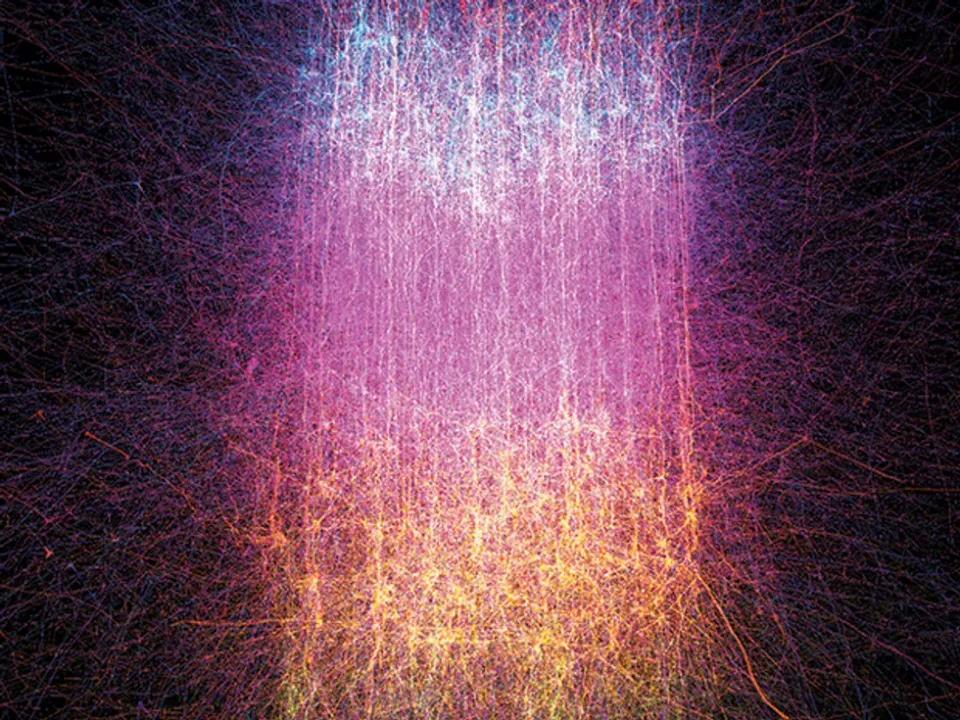
Kavi Gopal Ji was originally from Gokul, India.
(This town is associated with the history of Sri Krishna Ji
as they spent part of their childhood in Gokul near Mathura).
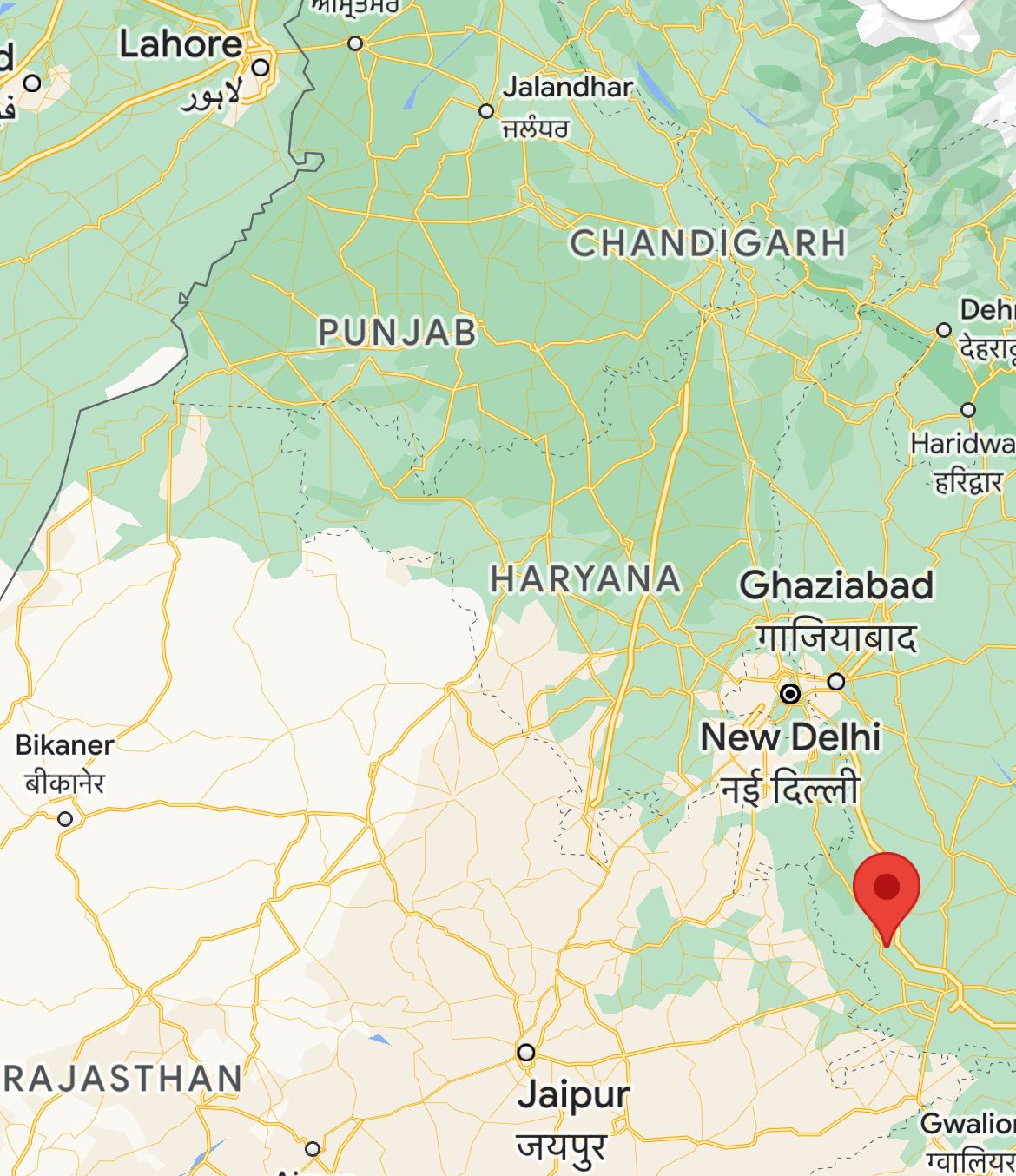
-
There are 2 writings associated to Kavi Ji:
Moh Marad Raajay Di Katha and Anbhau Oulaas.
Piara Singh Padam features a short excerpt from
Moh Marad Raajay Di Katha and the entirety of Anbhou Oulaas!
Anbhou Oulaas is a must read! Scroll down below to read it!
-
Moh Marad Raajay Di Katha begins this way:
ਗੁਰ ਗੋਬਿੰਦ ਕੀ ਆਗਿਆ ਪਾਉਂ ।
Gur Gobi[n]dh Kee Aagiaa Paaoo[n]
With Guru Gobind Singh Ji’s Permission,
ਸੰਤ ਸਮਾਗਮ ਬਚਨ ਸੁਨਾਉਂ ।
Sa[n]th Samaagam Bachan Sunaaoo[n]
I will share some words with the Sant Samaagam (Darbari Sangat)
ਸੁਣੀਏ ਏਕ ਮਹਾਂ ਪੁਰਾਨਾ ।
SuNeeae Aek Mahaa[n] Puraanaa
Please listen to [a story] from one of the Mahapurana’s (18 Major Puranas)
ਨਾਰਦ ਬਿਸਨੁ ਕੋ ਭਯੋ ਬਖਾਨਾ ।੧।
Naaradh Bisan[u] Ko Bhayo Bakhaanaa
Naarad Muni narrates to Vishnu Ji...
-
Guru Sahib had many ancient masterpieces retold for modern Indians to be able to understand. This is one such texts.
At the end of ‘Moh Marad Raajay Di Katha’,
the following is written:
-
ਗੁਰਗੋਬਿੰਦ ਕੀ ਆਇਆ ਪਾਈ ।
GurGobi[n]dh Kee Aaeiaa Paaee
Having had Guru Sahib’s Physical Presence or Aagiya = Permission
ਸੰਤ ਸਮਾਗਮ ਬਚਨ ਸੁਨਾਈ
Santh Samaagam Bachan Sunaaee
I was able to share these words in Maharaj’s Darbar
ਮੋਹ ਮਰਦ ਰਾਜਾਂ ਕੀ ਗਾਥਾ ।
Moh Maradh Raajaa[n] Kee Gaathhaa
The Story of Moh Marad Raajaa[n]
ਨਿਤਪ੍ਰਤਿ ਗਾਵਹੁ ਜਨ ਜਗੰਨਾਥਾ ॥੧੧੨॥
Nithprath[i] Gaavah[u] Jan Jaga[n]naathaa
Sing this daily, Bhagats and Master of the World.
(Central Public Library, Patiala, Folio #712)
-
The second work – Anbhau Oulaas – is quite short but from this writing, we find out Kavi Ji was well versed in Vedanti granths. With the Blessing of Guru Ji’s Sangat, they had become a Tat-Giani (Thath-Gianee; someone who understands the essence of existence/reality). At the end of this writing, Kavi Ji writes:
-
ਗੁਰ ਗੋਬਿੰਦ ਪ੍ਰਤਾਪ ਤੇ, ਕਾਟਿ ਅਹੰ ਮਮ ਫਾਸਿ
Gur Gobi[n]dh Prathaap Thae Kaat[i] Aha[ng] Mam Phaas[i]
From Guru Gobind Singh Ji’s Radiating Glory, the noose of ego has been cut
ਜਨ 'ਗੋਪਾਲ' ਬੀਚਾਰਕੈ, ਕਹਯੋ ਅਨਭਉ ਉਲਾਸ।
Jan Gopaal Beecharkai Kahayo Anbhau Oulaas
Refer to this writing as Anbhau Oulaas which Kavi Gopaal Ji has written.
(Folio of Anbhou Oulaas, kept by Gobind Singh Laambaa (Patiala) at the time this granth was published)
-
There is a copy of this available at the Punjab University Library (Chandigarh), Folio #828), from which we get Full Darshan of Anbhou Oulaas:
-
ੴ ਸਤਿਗੁਰੂ ਜੀ ਸਹਾਇ॥
Ik Oang-kaar Sath[i]guroo Jee Sahaae[i]
-
ਅਨਭਉ ਉਲਾਸ
Anbho[u] Oulaas
Anbhou means Feelings/Experience;
Oulaas can mean Prakaash (Enlightenment/Radiance) or Anand (Bliss)
-
Kavi Ji are explaining Their Experience of Spiritual Enlightenment.
Dhan Sri Guru Gobind Singh Ji Maharaj describes Akaal Purakh as the Form of Spiritual Experience Itself: Anbhau Prakaash
-
ਨਮੋ ਸੱਚਿਦਾਨੰਦ ਅਪਨ ਪੌ ਪਰਮ ਅਨੂਪਾ,
ਗੁਰ ਗੋਬਿੰਦ, ਗਣੇਸ਼, ਸਾਰਦਾ ਸਕਲ ਸਰੂਪਾ । ੧।
Namo Sachidhaana[n]dh Apan Pau Param Anoopaa
Gur Gobi[n]dh GaNaesh Saardhaa Sakal Saroopaa
-
Word-by-Word:
Namo = Namaskaar = Reverence/Bowing Down | Sachidhaanand = 3 Aspects of ੧ = Sat (True/Reality) ~ Chit (Awareness/Consciousness) ~ Anand (Bliss) | Apan = Your | Pau = [Lotus-]Feet | Param = Ultimate/Supreme | Anoopaa = Cannot be Completely Praised/Described with words |
GaNaesh = Ganesh | Saardhaa = Saraswati, personification of Akaal Purakh’s Shakti of Creativity, Poetry | Sakal = All | Saroopaa = Forms |
-
Bowing to Akaal Purakh Vaheguru (Sat-Chit-Anand)
Your Lotus-Feet are the Most Ultimate and cannot be described/praised (not possible to do so). Dhan Guru Gobind Singh Ji Maharaj, Ganesh, and Saraswati... All Forms belong to You. (During this time, all poets would do a Mangal before writing a Granth... in Indian traditions, Ganesh is remembered (as representing the quality of removing obstacles), Saraswati is also remembered (the representation of the power of wisdom, arts, poetry, etc.)
-
Kavi Ji remembers Dhan Guru Gobind Singh Ji Maharaj first then mentions Ganesh, Saraswati but then also states all forms. Akaal Purakh is Sarab-Shakti-Maan, all powers are in the Hands of Vaheguru. Whether it is the power of removing obstacles (Bighaan Binaasan = Remover of Obstacles) or (Balihaaree Kudhrath Vasiaa = sacrifice to Vaheguru’s Creative Energy which resides within us). All other qualities you can think of, belong to Guru Sahib ~ Vaheguru.
-
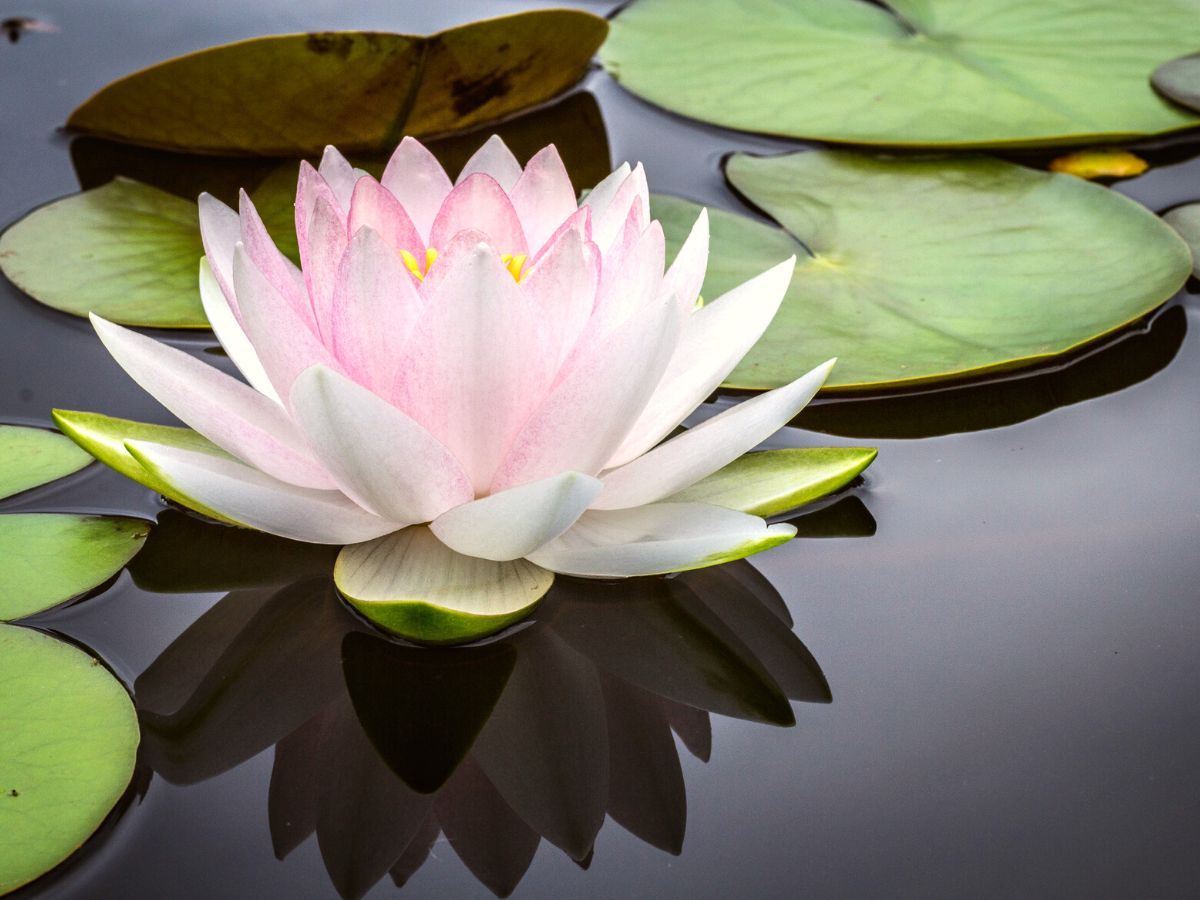
ਡਾਲ ਫੂਲ ਪਾਤ ਸਭੇ, ਪੋਖਤ ਜਰ ਪੋਖੈ
ਤੋਖਤ ਸਾਰੋ ਬਿਸੁ, ਆਤਮਾ ਕੋ ਤੋਖੈ ।੨।
Daal Phool Paath Sabhae Pokhat Jar Pokhai
Thokhth Saaro Bis[u] Aatmaa Ko Thokhai
-
Word-by-Word:
Daal = Lotus | Phool = Flower | Paath = Leaf/Leaves | Pokhath = Nourish | Jar = Root | Pokhai = Nourishes |
Thokhath = Pleased/Fulfilled | Saaro = All | Bis[u] = Biswa = Universe | Aathmaa = Jeev-Aatmaa | Thokhai = Pleases/Fulfills |
-
All of the Lotus, Flowers, Leaves (& other vegetation)
are nourished when the roots are nourished.
The entire world becomes fulfilled
when [we realize] that the Nature of Aatma is fulfilling/pleasing.
-
Aatmaa in the traditional scholarly sense does not refer to the individual soul as we may say in modern Indian languages. Aatmaa and Param-Aatmaa are seen as One. That which resides within you is no different than that Vaheguru which resides within everything else. Jeev-Aatma refers to Aatma when perceived in a being as separated. Sometimes, Aatma can be used to refer to Jeev-Aatma but most times in traditional Vedantic contexts, it is used to refer to the Nondual Vaheguru. Vaheguru and Aatma will be used interchangeably in translating this vichaar.

ਮੁਕਰਨ ਮਹਿਂ ਪ੍ਰਤਿਬਿੰਬ, ਤਿਨਹਿ ਪੂਜੇ ਕਹਾਂ ਕੋਈ
ਨਿਜ ਮੁਖ ਪੂਜੇ ਕਿਉਂ ਨਾ, ਜਾਂਹਿਂ ਪੂਜੇ ਸਬ ਸੋਈਂ। ੩ ।
Mukaran Mahi[n] Prathibi[m]b Thinah[i] Poojae Kahaa[n] Koee
Nij Mukh Poojae Kio[un] naa Jaa[n]hi[n] Poojae Sab Soee[n]
-
Word-by-Word:
Mukaran = Mirror[s] | Mah[in] = Within | Prathibi[m]b = Reflection | Thinah[i] = Towards | Poojae = Worships | Kahaa[n] = How | Koee = Anyone |
Nij = Own | Mukh = Face, Door, Effort | Kio[n] = How | Naa = used for negation | Jaa[n]h[i] = Know, Understand | Soee = In reference to the same thing as before |
-
The Reflection is in the Mirror, where and who worships the reflection?
Why don’t you worship your own face? It is the same [5 elements] which everyone is worshipping
-
This world’s form/manifestation is all different collections of the 5 elements. Vaheguru has arranged the 5 elements in all sorts of ways. Wherever you go it’s the 5 Elements. If Vaheguru is within everything, why don’t you see Vaheguru in yourself? You may look at yourself with particular pride or maybe feel self-conscious/anxious about yourself, why is this? If you see this duality then your perception is warped. Reflect on this! Isn’t this disrespectful to Guru Sahib. Guru Sahib is Shabad Roop (Dhur Ki Baanee, not of 5 elements... Vaaho Vaaho Baanee Nirankaar Hain).
This is a profound discussion Kavi Ji is having. We worship Vaheguru without seeing Vaheguru within us. Once, we start to reflect on other parts of our lives and how Vaheguru is present there as well then it will change our relationship with these parts and make us live in the present moment. In Vaheguru’s Presence.
-
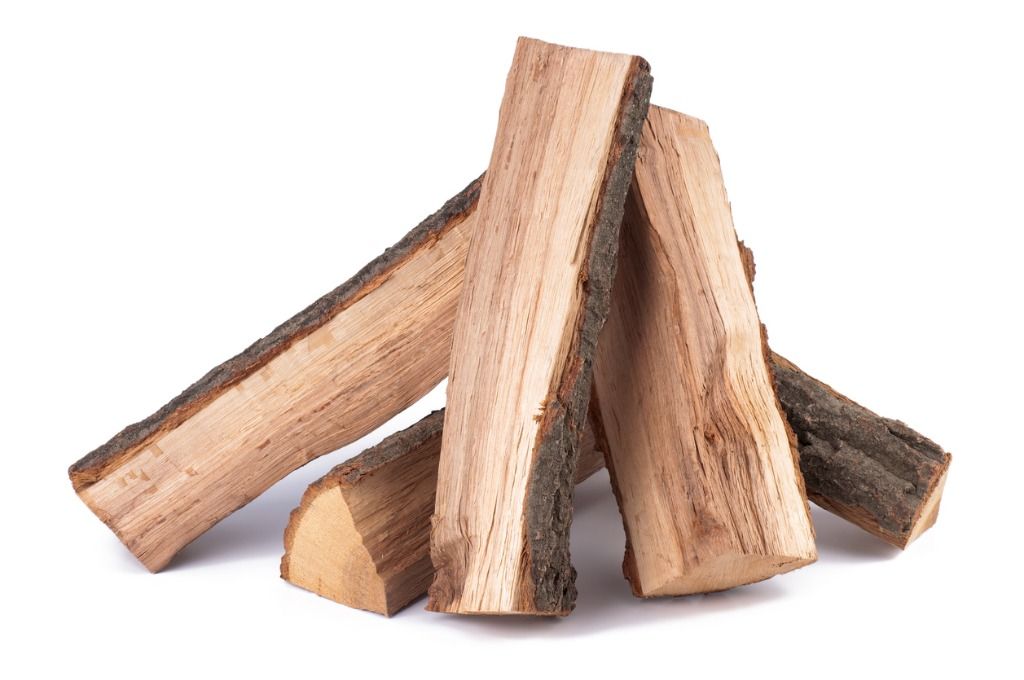
ਰਹੈ ਹਿਰਦੈ ਹੇਰ, ਵਿਆਪ ਦਾਰ ਮੈਂ ਪਾਵਕ ਜੈਸੇ ।
Rahai Hirdhai Haer Viaap Dhaar Mai[n] Paavak Jaisae
-
Word-by-Word:
Rahai = Remain | Hirdhai = Heart | Viaap = Present | Dhaar = Wood | Mai[n] = Within | Paavak = Fire | Jaisae = Just like |
-
Remain looking inwardly towards your heart,
Be able to see that which is present like fire in wood.
-
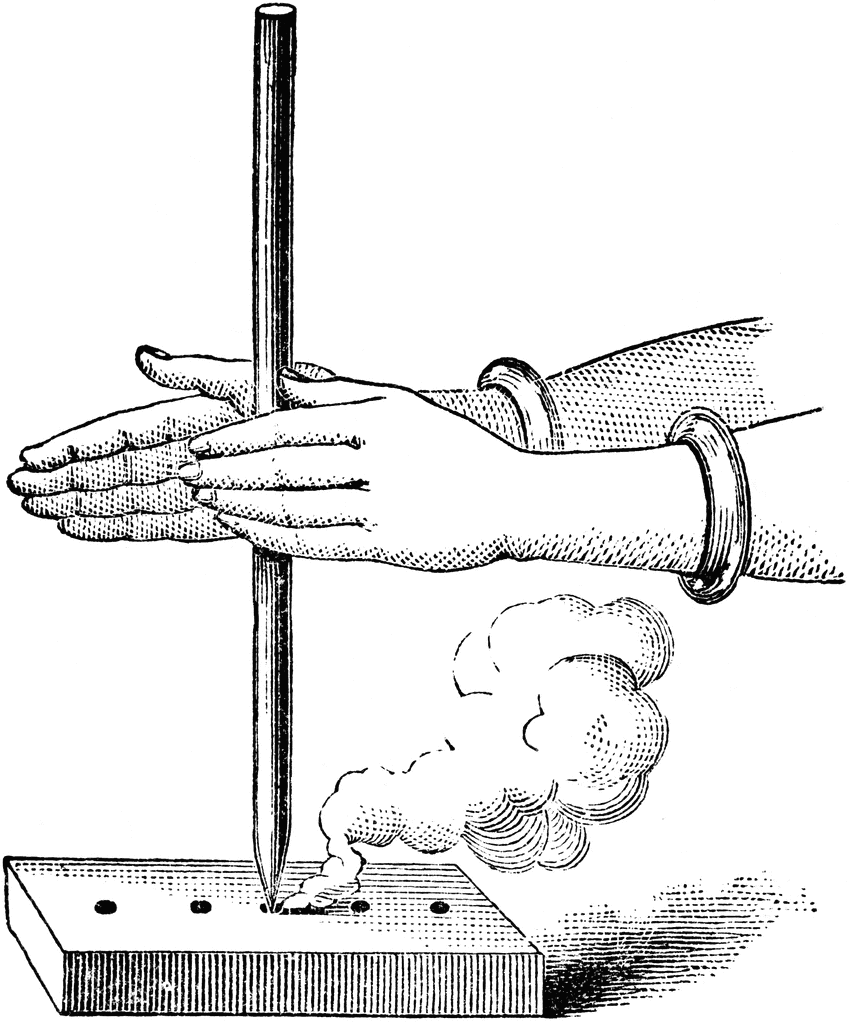
ਬਿਨਾ ਦਾਰ ਕੇ ਮਥੇ, ਅਗਨਿ ਪੈ ਪ੍ਰਗਟੇ ਕੈਸੇ ।੪।
Bina Dhaar Kae Mathhae Agan[i] Pai Pragatae Kaisae
-
Word-by-Word:
Binaa = Without | Dhaar = Fire | Mathhae = Churn | Agan[i] = Fire | Pai = On | Pragatae = Born, Becomes Visible | Kaisae = How |
-
Without digging into the wood, how can the fire come out from it?
-
Likewise, how can one see that which is hidden in the heart without digging deep (introspecting)? Is Gurbani just surface level for you? Apply Gurbani to your way of seeing the world and watch how life changes.
-

ਧਰੀ ਬਸਤੁ ਘਰ ਮਾਂਹਿ, ਬਿਨਾ ਦੀਪਕ ਕਿਉਂ ਚਹੀਏ
Dhharee Basath[u] Ghar Maahi[n] Bina Dheepak Kiou[n] Chaheeae
-
Word-by-Word:
Dhharee = Taking on, Mountain, Earth, Ground | Basath[u] = Vasthoo = Thing or Vasdhaa = Resides within | Ghar = Home | Maa[n]h[i] = Without | Binaa = Without | Dheepak = Lamp | Kio[n] = How | Chahee-ae = Desire |
-
You can have grand [mountain-like] items in your home [ie expensive things]
Without light to see them then what use are they?
-
ਤਿਉ ਪ੍ਰਭੁ ਆਪਨ ਮਾਂਹਿ, ਬਿਨਾ ਗੁਰ ਗਯਾਨ ਨ ਲਹੀਏ।੫।
Thio[u] Prabh[u] Aapan Maa[n]hi Binaa Gur Gyaan n Laheeae
-
Word-by-Word:
Thio[u] = In this way | Prabh[u] = Away from 5 elements = Nirgun Vaheguru | Aapan = Yourself | Gur = Guru Sahib | Gyaan = Spiritual Wisdom | Lahee-ae = Receive |
-
In this way, Vaheguru is within us...
Without Guru’s Giaan/Wisdom, we will not be able to realize
and enjoy Their Presence.
-
Vaheguru is the Light, without the Light we are not aware of anything.
The Awareness created this Universe and what gives us consciousness.
-
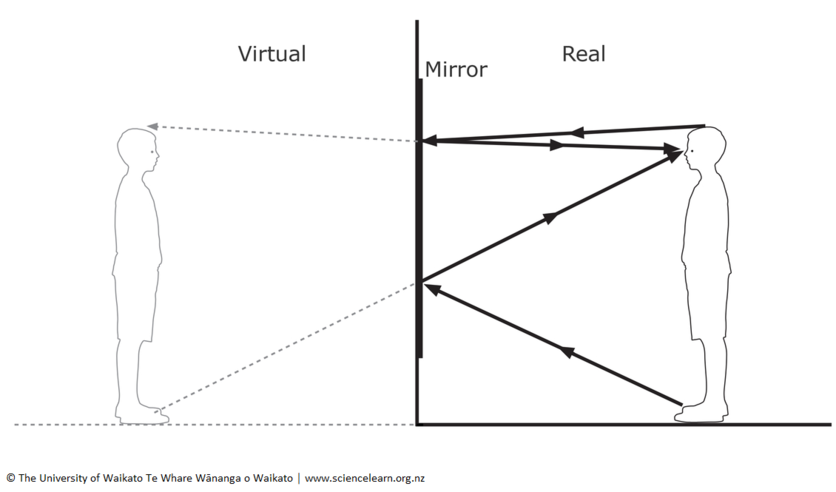
ਮੁਕਰ ਮਾਹਿ ਨਿਜ ਰੂਪ ਕਹੂੰ, ਤੇ ਲੈਨ ਨ ਜਾਨੋ
Mukar Maahi[n] Nij Roop Kahoo[n] The Lain n Jaano
-
Word-by-Word:
Roop = Physical Form | Kahoo[n] = Where, Any | Thae = From | Lain = Receive, Take | n = negation | Jaano = Realize, Understand, Know |
-
You ask, “Where is your own figure in the mirror?”
-
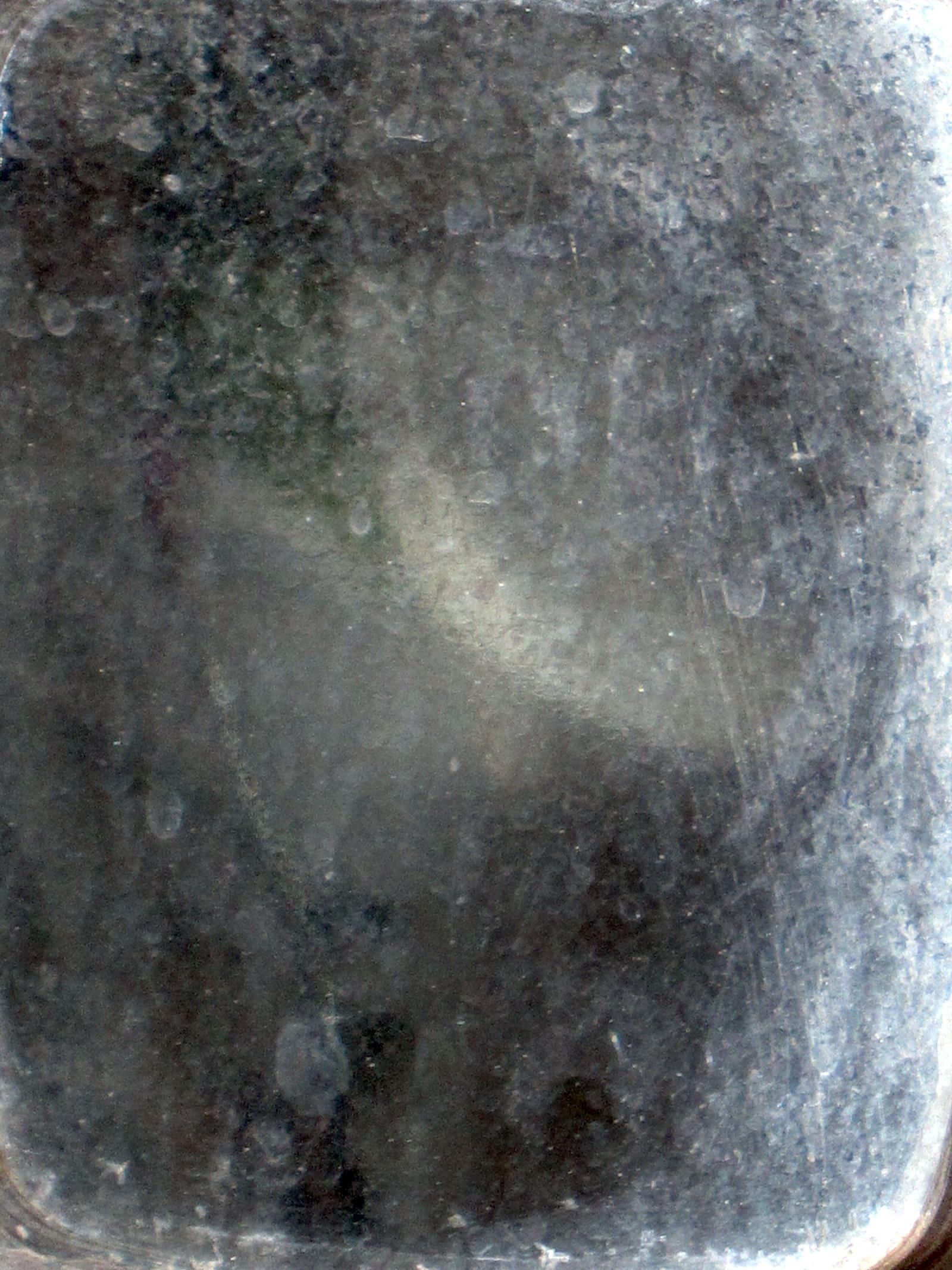
ਮੈਲ ਮਾਂਜ ਕੇ ਦੇਖਿ ਪਰੈ, ਅਬ ਹੀ ਪਹਿਚਾਨੋ ।੬।
Mail Maa[n]j Kae Dhaekh[i] Parai Ab Hee Pahichaano
-
Word-by-Word:
Mail = Filth, Dirt | Maa[n]j = Scrub | Dhaekh[i] = Look | Parai = Upon | Ab Hee = Now | Pahichaano = Recognize |
Scrub away the filth then look at it... Now recognize!
-
The mind is the place upon which the Light of Vaheguru shines but it is covered in the dirt of 5 vikaars. Vaheguru appears to be separate but by cleaning the mind through reading Gurbani and doing Simran then Vaheguru becomes visible.
-
ਪਰ ਕੋ ਜਾਨਨ ਕਠਿਨ ਸੁ, ਤੋ ਤੂ ਜਾਨਤ ਹੈਂ ਸਬ
Par Ko Jaanan Kattin Su Tho Thoo Jaanath Hai[n] Sab
-
Word-by-Word:
Kattin = Difficult |
-
Knowing someone else’s nature is quite difficult,
So recognize the nature of everything [it’s your nature as well]
-
ਅਪਨੇ ਜਾਨਨ ਮਾਂਹਿ ਆਪ ਕੌ, ਕੌਨ ਕਠਿਨ ਅਬ।੭।
Apanae Jaanan Maa[n]hi Aap Kau Kattin Ab
-
In trying to know yourself, it’s yourself (you are most familiar with yourself),
How can it be difficult now?
-
Vaheguru seems difficult to realize when we see Vaheguru as someone far away or someone separate from us. When you look at Vaheguru within yourself and always present then you won’t find it to be a difficult task.
-
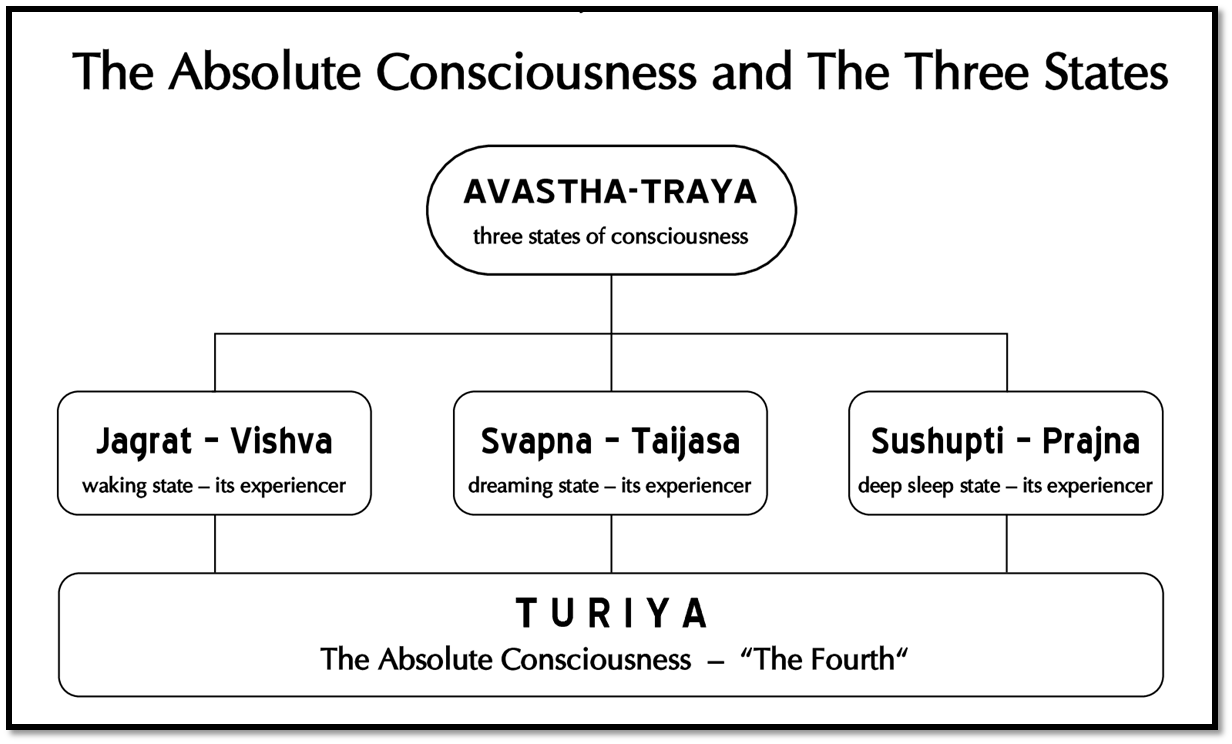
ਜਾਗ੍ਰਤ ਸੁਪਨ ਸਖੋਪਤ ਹੂੰ, ਕੋ ਸਾਛੀ ਜੋਈ
Jaagrath Supan Sakhopath Hoo[n] Ko Saachhee Joee
-
Word-by-Word:
Jaagrath = Waking State | Supan = Dream State | Sakhopath = Deep Sleep State | Sachhee = Saakshee = Witness |
-
There are 3 states of mental awareness: Jaagrat, Swapan, Sushopati,
Who is the witness to these 3?
-
These are the 3 states our mind goes through yet Vaheguru is present as consciousness in all 3 states. When you go to deep sleep is there any ego or identity present? There is only the witnesser. Likewise, in the waking and dream state, it may seem that there is ego/identity/separation/variety but these are mirages.
-
ਪੁਨ ਤਿਨ ਕੀ ਗਤਿ ਅਗਤਿ, ਇਕ ਰਸ ਜੋ ਕੋਈ।੮।
Pun Thin Kee Gath[i] Agath[i] Eik Ras Jo Koee
-
Word-by-Word:
Pun = Again, Then, Pure | Gath = Spiritual State | Agath[i] = Stateless | Ik-Ras = Concentrated, Gathered in Focus of 1 |
-
Then their state is stateless, whomever is attuned to the Ik-Ras (Essence of the One)
-
Vaheguru’s Nature cannot be confined to a spiritual state
and thus, the mind attuned to this then takes upon this statelessness as well.
-
ਦੇਹਿ ਇੰਦ੍ਰੀਅਨ ਮਨ ਪਰੇ, ਸਬਨ ਕੀ ਅਵਧ ਜੁ ਹੈ ਰੇ
Dhaeh[i] Ei[n]dhreean Man Pare Saban Kee Avadhh Ju Hai Rae
-
Word-by-Word:
Dhaeh[i] = Body | Eindhreean = Senses | Avadhh = Limit or Abadhh = Free from Entanglement, Immortal, Without stop |
-
Beyond Body, Senses, and Mind; free from all of these...
-
ਸੁਖਪਤਿ ਅਨੁਭਵ ਸਿੰਧੁ, ਆਤਮਾ ਜਾਨਸੁ ਹੈ ਰੇ ।੯।
Sukhpath[i] Anubhav Si[n]dhh[u] Aatmaa Jaanas[u] Hai Rae
-
Word-by-Word:
Sukh-path[i] = Husband of Peace | Anubhav = Spiritual Experience | Si[n]dhh[u] = Ocean | Jaanas[u] = Know, Recognize |
-
The Husband of Peace & The Ocean of Spiritual Experience
Know these to be the qualities of Aatmaa/Vaheguru.
-

ਸੂਰਜ ਏਕ ਅਨੇਕ, ਜਗਤ ਕੋ ਜਿਉਂ ਪ੍ਰਕਾਸ਼ਤ
Sooraj Aek Anaek Jagath Ko Jio[un] Prakaashth
-
Word-by-Word:
Sooraj = Sun | Prakaashath = Radiating |
-
From One Sun comes multiple [lights],
the entire solar system is provided light from this Sun
-
Consciousness of Vaheguru resides within all and this causes us to have consciousness/awareness. We think we have independent consciousness but rather we all have One Consciousness which appears different due to the ego.
One Sun may shine Its Sunlight into multiple mirrors but at the end of the day, it is only One light being distributed. All the mirrors reflect it. The mirrors cannot produce light of their own. Our minds ‘reflect’ Vaheguru’s Consciousness but the minds themselves do not have consciousness. Although, it might appear this way.
-

ਦੇਹ ਇੰਦ੍ਰੈਗਣ ਸਬਨ ਮਾਹਿਂ ਤਿਉਂ ਆਤਮ ਭਾਸਤ । ੧੦।
Dhaeh EindhraiGaN Saban Maahi[n] Thio[un] Aatam Bhaasath
-
Word-by-Word:
Bhaasath = Shine, Radiates | EindhraiGaN = Servant of the Indriya-Senses [lit. body parts through which senses work through; ie sight’s servant = eyes, smell’s servant = nose, hearing’s servant = ears, touch’s servant = skin, taste’s servant = tongue, etc.]
-
Within the Body and the Senses; The Aatma gives Light/Consciousness to All.
-
The Body is just 5 elements and so are the sense-organs.
They receive consciousness/awareness through the Aatmaa.
-
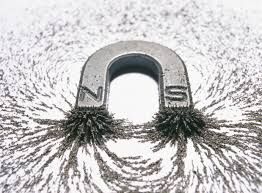
ਜੈਸੋ ਚੁੰਬਕ ਸੰਗ ਲਗਿਓ, ਲੋਹੋ ਨਿਰਤਤ ਹੈ
Jaiso Chu[n]bak Sa[n]g Lagio Loho Nirathath Hai
-
Word-by-Word:
Chu[n]bak = Magnet | Loho = Metal | Nirthath = Nir= Without, negation | Thath = Essence |
-
Like the magnet sticks to metal, the metal does not have this essence.
-
Metal does not have any power on its own but magnet causes push-pull.
-
ਤਿਉਂ ਆਤਮ ਸਤਿਆ ਪਾਇ, ਬਲ ਇੰਦ੍ਰੀਅਨ ਵਰਤਤ ਹੈ। ੧੧।
Thio[un] Aatham Sathiaa Paaei Bal Eindhreean Varthath Hai
-
Word-by-Word:
Sathiaa = Shakti = Power | Bal = Strength, Power | Varthath = Acts |
-
Through the Conscious-Power of Aatmaa,
The sense organs receive consciousness in order to work.
-
Otherwise, the eyes, mouth, nose, ears, and skin are dead.
-
ਆਤਮ ਦੀਪ ਪ੍ਰਕਾਸ਼ ਮਾਤ੍ਰ, ਇੰਦ੍ਰੀਅਨ ਗੁਨ ਗਹਿਈ
Aatham Dheep Prakaash Maathr Eindhreean Gun Gahiee
-
Word-by-Word:
Dheep = Light, Lamp | Maathr = Only | Gahi-aee = Grasp |
-
The Light/Lamp of the Aatmaa can only be described as Radiance/Shining,
Within the Sense-Organs, they only appear to take on their qualities
-
Smelling, touching, seeing, tasting, hearing ... these may appear to be belonging to Aatmaa but the nature of the Aatmaa is never changing yet gives existence to all.
-

ਯਥਾ ਫਟਕ ਮੈਂ ਰੰਗ, ਮਣਿ ਨਿਸ਼ਾਨਿਧਿ ਤੇ ਲਹਈ । ੧੨।
Yathha Fatak Mai Ra[n]g MaN[i] Nishaanidhh[i] Thae Lahaee
-
Word-by-Word:
Yathhaa = Just like | Fatak = Glass | MaN[i] = Jewel | Nishaanidhh[i] = | Lah-aee = Seen |
-
Just like colour is [seen] through glass,
The jewel is seen as being nishaanidhh[i] [treasure of the night;
as often light shines through jewels to allow for light to spread in darkness]
-
The light does not belong to the jewel and the colour does not belong to the glass.
Our mind is the jewel, it does not produce any light of its own but is most glorious when the Divine Light is acknowledged through it. Aatma does not have any colour but when the Consciousness is placed into the creation, the consciousness appears to have colour.
-

ਨੀਰ ਛੀਰ ਵਤ ਮਿਲਿਓ, ਦੇਹਿ ਆਤਮ ਅਧਿਯਾਸੰ
Neer Chheer Vath Milio Deh[i] Aatham Adhihiyaas[ng]
-
Word-by-Word:
Neer = Stream | Chheer = Milk | Vath = Again, Soft Soil | MiliO = Meets | Dhaeh[i] = Body | Adhiyaas[ng] = Imposed, misperception |
-
Just like the water in the streams take on the form of the soil when being watered,
The body is imposed upon the Aatma and thus appears to be the body.
-
This superimposition is done because of our ignorance towards the Aatmaa. Contemplating on this nature of Vaheguru will allow us to see Vaheguru everywhere,
-

ਨਿਰਵਾਰੋ ਕੋਊ ਕਰੈ ਪਰਮ ਹੰਸਾ ਸੰਨਿਆਸੰ । ੧੩।
Nirvaaro Ko-oo Karai Param Ha[n]saa Sa[n]niaas[ng]
-
Word-by-Word:
Nirvaaro = Stop, Remove | Ko-oo = Some | Karai = Do | Paramha[n]saa = Paramhans mythological being | Sa[n]niaasa[n]g = Renouncing |
-
The only ones who can distinguish the water from the soil or the Aatmaa from the body are the renunciate Paramhans
-
Paramhans is a mythological Super-Swan-like being which appears many times in Gurbani to illustrate a point. Those Gurmukhs who continually connect to Guru Sahib, they develop a way of thinking call Bibek-Budhhi. Paramhans is rare to find and only said to be found at Mansarovar [name of a lake]. Gurbani says that the Saint is a Paramhans and the Saint is found with the Ocean of Guru Sahib
(Gur Saagar Rathnee Bharpoorae, Amrith Santh Chugai nahee Dhoorae).
The Paramhans are able to separate water from milk, eat jewels not bugs and dirt like other birds. The Gursikh lives in the world in this way. They are able to see Guru Sahib in this Burning World and do not eat the bugs of vices.
-
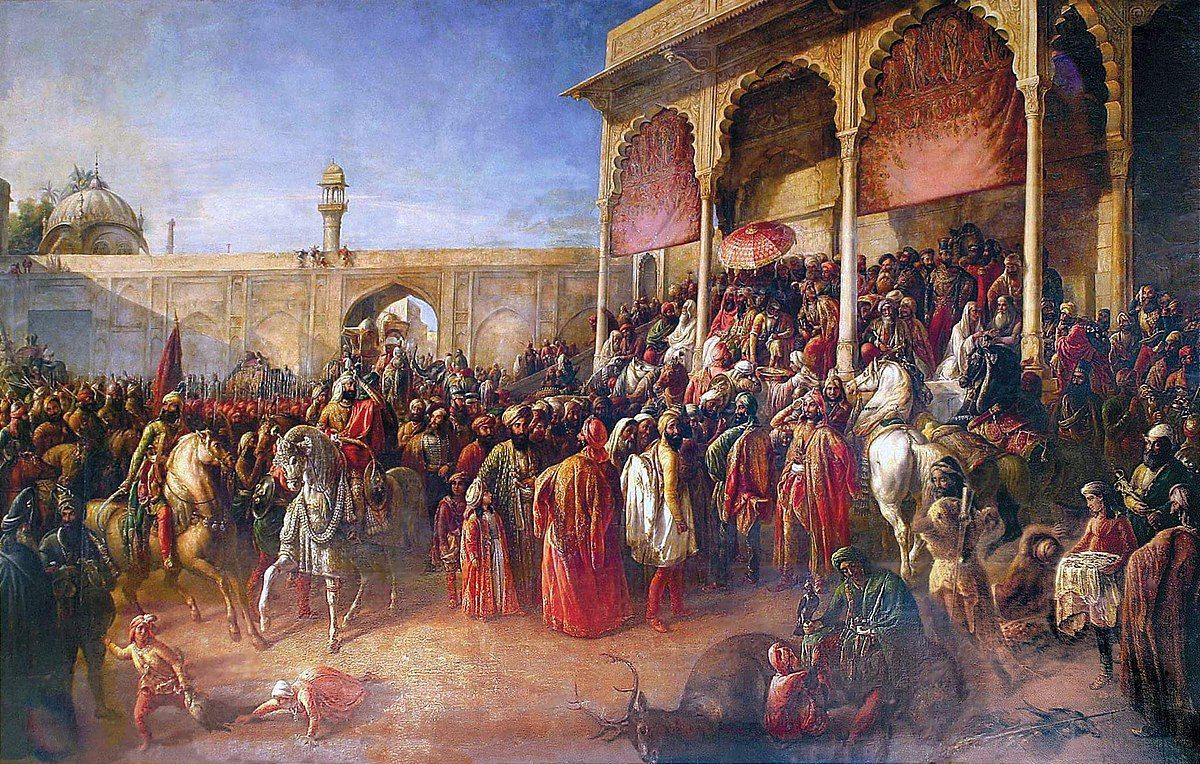
ਕਾਇਆ ਪੁਰਿ ਮਨ ਮਹਿਲ, ਤਿਤ ਆਤਮਰਾਜ ਬਿਰਾਜੈ
Kaaeiaa Pur[i] Man Mahil Thith Aathamraaj Biraajai
-
Word-by-Word:
Kaaeiaa = Body | Pur[i] = Puree = City | Mahil = Palace | Thith = That | Raaj = King, Reign, Rule | Biraajai = Sits (Formal, as in sitting on throne) |
-
The body is a city... the mind is a palace,
where King-Aatma sits on the Throne
-
ਸਬ ਕੋ ਮੁਜਰਾ ਲੇਤ ਹੋਤ, ਜੋ ਕਾਜ ਅਕਾਜੈ ॥੧੪ ॥
Sab Ko Mujraa Laeth Hoth Jo Kaaj Akaajai
-
Word-by-Word:
Mujraa = Pranaam, Salaam, Greeting, Saluted | Laeth = Receives, Take | Hoth = Becomes, Is | Kaaj = Task, Work, Act | Akaajai = Without Action, Without Task, Without Work |
-
King-Aatmaa receives salutations from everyone yet sits still not doing anything.
-
Nirgun Vaheguru receives all of the qualities of being stable, not moving, not acting.
In this way, the King who looks over the City-Kingdom detached yet still within it. The King does not act themself. The King has Ministers, Soldiers, Dancers, Servants etc. which do all the work in the palace-mind. They act in the city of the body.
-
ਦੇਖੈ ਸਬਹਨ ਸੋਇ, ਨ ਦੇਖਹਿ ਤਾਂ ਕੋ ਕੋਈ
Dhaekhai Sabahan Soe[i] n Dhaekhah[i] Thaa[n] Ko Koee
-
Vaheguru sees everyone; yet no one sees Vaheguru.
-
ਬਸੈ ਬਸਨ ਕੇ ਮਾਹਿਂ, ਕਹੂੰ ਤੇ ਲਿਪਤ ਨ ਹੋਈ ।੧੫।
Basai Basan Kae Maahi[n] Kahoo[n] Thae Lipath n Hoee
-
Word-by-Word:
Basai = Resides, | Basan = Home, Residence | Kahoo[n] = Where, Someone | Lipath = Attached to |
-
Living in the dwelling yet not getting attached to anyone.
-

ਜਿਉ ਤਨ ਬਸਨਨ ਮਾਹਿਂ, ਬਸਨ ਕੇ ਜਰੇ ਨ ਜਰਈ
Jio[u] Than Basanan Maahi[n] Basan Kae Jarae n Jaraee
-
Word-by-Word:
Than = Body | Basanan = Clothing, Clothes = | Jarae = Tolerate, could mean ‘burn’ as well |
-
Just like the body exists within the clothes,
if the clothes are burned it does not mean the body is burned.
-
ਤਿਉਂ ਆਤਮ ਤਨ ਮਾਹਿਂ, ਮਰੇ ਤਨ ਕੇ ਨਹਿ ਮਰਈ ।੧੬।
Thio[un] aatham Than Maahi[n] Marae Kae Nah[i] Maraee
-
Word-by-Word:
Marae = Dies |
-
In the same way the Aatmaa independently lives in the body,
Aatma does not die but the body does.
-
ਜਿਉਂ ਅਨੇਕ ਮਣਿ ਮਾਂਹਿ, ਏਕ ਗੁਨ ਬਯਾਪ ਰਹਯੋ ਹੈ
Jio[un] Anaek MaN[i] Maa[n]hi Aek Gun Byaap Rahayo Hai
-
Word-by-Word:
Byaap = Vyaap = Present, Pervade | Rahayo = Remain, Lives | MaN[i] = Jewel |
-
Just like many rays come out of the Jewel,
One-Shining Nature is pervading everywhere
-
ਤਿਉਂ ਅਨੇਕ ਤਨ ਮਾਂਹਿ, ਏਕ ਆਤਮਾ ਠਹਯਾਂ ਹੈ ।੧੭।
Thio[un] Anaek Than Maa[n]hi[n] Aek Aathmaa Ttahayaa[n] Hai
-
Word-by-Word:
Ttahayaa[n] = Ttehreya = Stopped, |
-
In the same way, there are many bodies but One Aatmaa standing within them All.
-
ਮੁਕਰਨ ਮੇਂ ਹੈ ਭੇਦ, ਭੇਦ ਮੁਖ ਮਾਂਹਿ ਨ ਹੇਰੈ
Mukaran Mae[n] Hai Bhaedh Bhaedh Mukh Maa[n]hi n Haerai
-
Word-by-Word:
Mukaran = Mirror | Bhaedh = Secret, Mystery, Difference |
-
There is a secret within the mirror,
we do not see the mystery within even after looking directly into it,
-

ਮੁਕਰਨ ਫੋਰ ਨਿਹਾਰ ਏਕ, ਤੂੰ ਤਾਂ ਪਰ ਹੇਰੈ ॥੧੮॥
Mukaran Phor Nihaar Aek Thoo[n] Thaa[n] Par Haerai
-
Word-by-Word:
Phor = Break, Destroy | nihaar = Look, See |
-
Break the mirror and see that there is only One,
You thought you were looking at someone else.
-
Living in this world, we feel that there are multiple people, places etc in this existence but it is just the One Consciousness aspect of Vaheguru everywhere. If the Universe was destroyed this Consciousness would still exist. Imagine someone is sleeping and they wake up to tell you about their dream. The Dreamer is One even though there are hundreds of people that appear in Their Dream. You look at the person dreaming and realize all of those varying experiences happened all within that one person sleeping.
-
ਘਟ ਮਟ ਛੂਟੇ ਰਹੈ, ਏਕ ਨਭ ਜੈਸੇ ਭਾਈ
Ghat Mat Phootae Rahai Aek Nabh Jaisae Bhaaee
-
Ghat = Pot, Body, Heart, Mind, | Mat = Home of Spiritual Student, Dev-Mandhar | Chhootae = Gone, Let Go | nabh = Sky, Closeness, Water, Cloud, Rain | Bhaaee = Brother, Friend |
-
Oh Brother,
When the pot is broken then the water is seen as no different
than the One Source it came from...
When a person leaves the roof of a house then
they find themselves under the collective roof of the sky.
-
ਜੀਵ ਈਸ ਬੁਧਿ ਮਿਟਹਿ, ਏਕ ਆਤਮ ਰਹਾਈ। ੧੯।
Jeev Ees Budhh[i] Mitah[i] Aek aatam Rahaaee
-
Word-by-Word:
Jeev = Jeev-Aatmaa = Perceived Separated Soul | Ees = Perceived Separated God | Budhh[i] = Decision-making Faculty of Mind | Mitah[i] = Removed, Gone | Rahaaee = Freed, Liberation |
-
The buddhi (decision making faculty of mind)
loses the [perceived differences] of Jeev and Ees,
then the One-Aatma is freed.
-

ਏਕ ਕਹਾਈ ਬੂੰਦ, ਏਕ ਬੁਦਬੁਦਾ ਕਹਾਇਓ
Aek Kahaaee Boo[n]dh Aek Budhbudhaa Kahaaeio
-
Word-by-Word:
Kahaaee = is referred to, called | Boo[n]dh = Drop | Budhbudhaa = Bubbles |
-
One form of water is referred to reality as a droplet, another form of water is referred to as bubbles.
-
ਦੋਊ ਭਯੋ ਗਲ ਨੀਰ, ਦੁਂਹਨ ਤਬ ਭੇਦ ਹਿਰਾਇਓ । ੨੦ ।
Dho-oo Bhayo Gal Neer Du[n]han Tab Bhaedh Hiraaeio
-
Word-by-Word:
Dho-oo = Both | Gal = Rot, Rust | Dhu[n]han = Both | Hiraaeio = Lose |
-
Both of them melt into the stream then the difference between the two is lost.
-
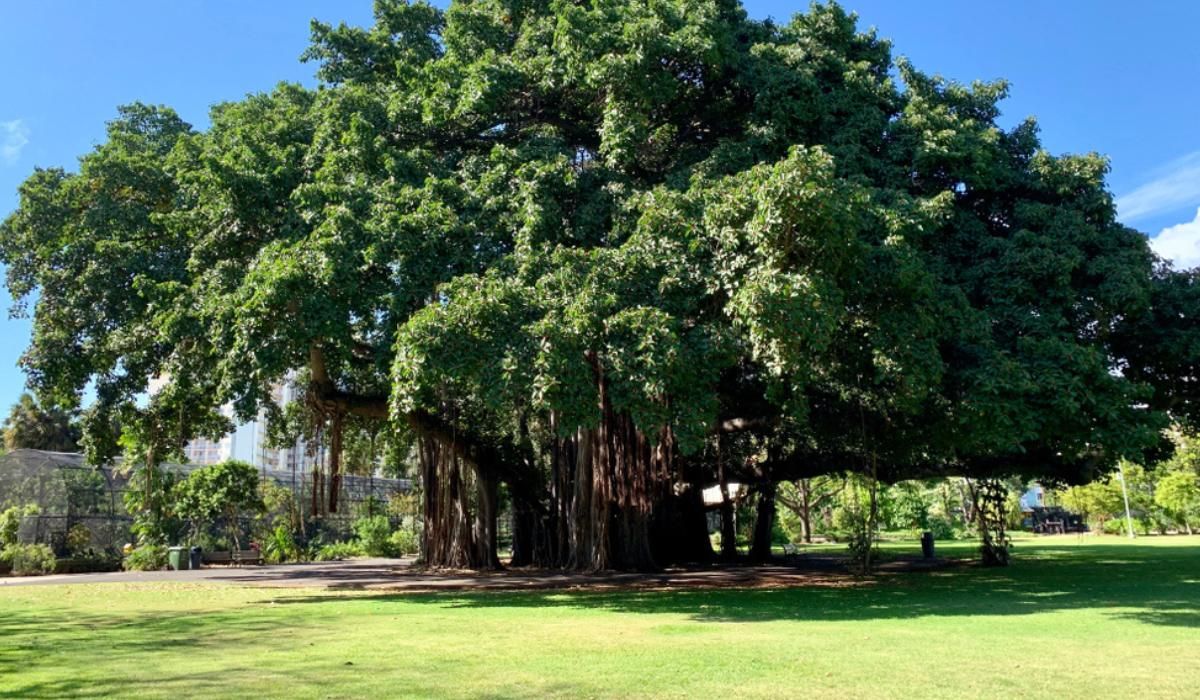
ਸੂਰਜ ਤੇ ਪ੍ਰਕਾਸ਼, ਬਟਕ ਤੇ ਬੀਜ, ਨਹੀਂ ਨਿਆਰੋ
Sooraj Thae Prakaash Batak Thae Beej Nahee[n] Niaaro
-
Word-by-Word:
Batak = Borr Tree | Beej = Seed | niaaro = Unique |
-
The Sun and its Sunlight, the Tree and the Seed...
They are not different from each other
-
ਬਟ ਤੇ ਛਾਂਹ ਨ ਭਿੰਨ, ਤਿਉਂ ਆਤਮ ਸੰਸਾਰੋ ॥ ੨੧ ॥
Bat Thae chha[n]h n Bhi[n]n Thio[un] Aatham Sa[n]saaro
-
Word-by-Word:
Bat = Borr Tree | Chhaa[n]h = Shade | Bhi[n]n = Different | Sa[n]saaro = Universe |
-
In the same way, the Tree is not separate from the shadow...
and Aatmaa is not separate from the Universe.
-
ਉਪਜਤ ਜਗ ਆਪ ਤੇ, ਆਪ ਹੀ ਮੈਂ ਦਰਸਾਵੈ
Oupajath Jag Aap Thae Aap hee Mai[n] Dharsaavai
-
Word-by-Word:
Upjath = Come out of, Born | Dharsaavai = seen as, visible |
-
The World forms from the Aatma and is visible due to the Aatma
-
Saibhang Quality of Vaheguru: Self-Existent
-
ਅੰਤ ਆਪ ਮੈਂ ਮਿਲਤ, ਭਿੰਨ ਸੱਤਾ ਨਹੀਂ ਪਾਵੈ ॥ ੨੨॥
A[n]th Aap Mai[n] Milath Bhi[n]n Sathaa Nahee[n] Paavai
-
Word-by-Word:
A[n]th = End | Bhi[n] = Different | Sa-thaa = Conscious-Power | Paavai = Attain, Receive |
-
At the end we merge with the Aatma,
There is no difference in the Conscious-Power
[from which our perceived separate consciousness comes from]
-
ਜਾਨੇ ਜਨ ਕੀ ਬਾਤ, ਭਲੇ ਜਨ ਕੋਊ ਜਾਨਾ ।
Jaanae Jan Kee Baath Bhalae Jan Ko-oo Jaanaa
-
Word-by-Word:
Jan = Slave, Man | Baath = Conversation, Discussion | Bhalae = Good, positive connotation |
-
Hearing [Kavi Ji’s] discussion,
the rare good being will recognize [the Truth].
-
ਜਾਨ ਅਜਾਨ ਜੁ ਭਯੋ; ਤਾਂਹਿ ਕਿਉਂ ਜਾਨੈ ਆਨਾ। ੨੩ ॥
Jaan Ajaan Ju Bhayo Thaa[n]hi Kio[n] Jaanai Aanaa
-
Word-by-Word:
Bhayo = Becomes, Is, Are | Aanaa = Coming, Arrival |
-
Those who Know the Unknowable
How can they come and go? [do not go through births and deaths]
-
Those who become spiritually enlightened,
They become liberated from the cycle of reincarnation.
-
ਸ਼ੂਝਹਿ ਬੂਝਹਿ ਸੋਇ, ਬਿਨਾ ਸੂਝਹਿ ਨਹੀਂ ਬੂਝੈ
Shoojhah[i] Boojhah[i] Soe[i] Bina Soojhah[i] Nahee[n] Boojhai
-
Word-by-Word:
Soojhah[i] = Understands, Wisdom, Good-Thinking, Way of Perceiving |
Boojhah[i] = Understand, Waking up, Knowing |
-
Whoever understands this lens of seeing
Without having this spiritual lens, you will never understand.
-
ਹੈ ਕਛੁ ਅਦਭੁਤ ਰੀਤਿ, ਬਿਨਾ ਬੁਝਹਿ ਨਹੀਂ ਸੂਝੈ ।੨੪।
Hai Kachh[u] Adhbhuth Reeth[i] Binaa Bujhah[i] Nahee Soojhai
-
Word-by-Word:
Adhbhuth = Wonderful | Binaa = Without | Bujhah[i] = Boojhai |
-
This is such a wonderful way of enlightenment.
Without waking up you will never have the lens.
-
ਬੂਝੀ ਚਹੀਏ ਬਾਤ, ਰਹੈ ਬਨ ਮੈਂ ਯਾ ਘਰ ਮੈਂ
Boojhee Chaheeae Baath Rahai Ban Mai[n] Yaa Ghar Mai[n]
-
Word-by-Word:
Chahee-ae = Wish to, Desire | Ban = Jungle, Forest | Ghar = Home |
-
If you wish to realize that which is being spoken of,
whether you live in the jungles or within a house.
-
ਭਯੋ ਧਨੀ ਧਨ ਪਾਇ ਖਾਹੁ, ਯਾ ਗਾਡੋ ਘਰ ਮੈਂ ।੨੫।
Bhayo Dhhanee Dhhan Paaei Khaah[u] Yaa Gaado ghar Mai[n]
-
Dhhanee = Wealthy | Dhhan = Wife | Khaah[u] = Eat, Food | Gaado = Dig |
-
Whether you become wealthy, have a wife, eat well,
or [in contrast] whether you have to dig yourself a home.
-
ਬਨ ਕੋ ਬਨੋ ਬਨਾਵ, ਰਾਜ ਕੋ ਬਾਨ ਬਨੌ ਸੌ
Ban Ko Bano Banaav Raaj Ko Baan Banau Sau
-
Word-by-Word:
Bano = Make | Banaav = Make, Turn into or = Banaavat = Creation, Imagined Reality | Baan = Bandhhan = Entanglement or = Arrow, Aspect, Sew, Planting, 2 Gajj Length, Type of Tree (Indian Oak) | Banau = Make | Sau = 100 |
-
Treat the jungle as if it came as a result of someone’s imagination.
Treat the kingdom as if it came as a result of being planted.
-
ਬਾਧਾ ਕੋਊ ਨਾਹਿਂ ਕੋ, ਭਰਮ ਜਾਨਯੋ ਦੁਹਨ ਕੌ ।੨੬।
Baadhhaa Ko-oo Naahi[n] Ko Bharam Jaanyo Duhan Kau
-
Word-by-Word:
Baadhhaa = Entanglement | Bharam = Doubt, Illusion|
-
They both are not entangled,
Recognize the doubts attached to both of them.
-
ਹੁਤੋ, ਹੁਤੈ ਸੁ ਹੈ, ਜੋ ਹੋ, ਸੋ ਹੋ ਰੇ
Hutho Huthai Su Hai Jo Ho So Ho Rae
-
Word-by-Word:
Hutho = Happen, Event, Will be | Huthai = Has happened, Is |
-
That which happens, is happening,
What exists, so it exists.
-
What Vaheguru commands will happen and is happeneing.
What Vaheguru has created is perfect [whether we see it as bad or good]
-
ਸਹਿਜਾਨੰਦ ਸਮਾਇ ਰਹਯੋ, ਤਿਹ ਆਗ੍ਰ ਕੋ ਰੇ ।੨੭।
Sahijaana[n]dh Samaaei Rahayo Thi[n]h Aagr Ko Rae
-
Word-by-Word:
Sahij-Aana[n]dh = Steady/Balanced/Patient Spiritual Bliss | Samaae[i] = Merged, Immersed | Rahayo = Remains | Aagr = Place [as in Ratanaagar], First, Highest |
-
Being immersed in the Truth will lead to being in a Steady State of Spiritual Bliss
They are in the Highest State.
-
If the perceiver suffers then the entire world is seen as painful,
If the perceiver is happy then the entire world is seen as delightful.
The One who is aligned with Vaheguru’s Reality will remain detached
and away from both worldly happiness and worldly sadness.
-
ਜੋ ਕਛੁ ਦੇਖੈ ਸੁਨੈ, ਸੁ ਸਬ ਜਿਹ ਆਤਮ ਭਾਸੈ
Jo Kachh[u] Dhaekhai Sunai Su Sab Ji[n]h Aatham Bhaasai
-
Word-by-Word:
Jo Kachh[u] = Whatever |
-
Whatever is seen or heard... is given existence by Aatmaa
-
ਕਾਂਕੋ ਤਿਆਗੈ ਗ੍ਰਿਹੈਂ, ਕੌਨ ਪੁਨ, ਕੌਨੈ ਨਾਸੈ ।੨੮।
Kaa[n]ko Thiaagai Grihai[n] Kaun Pun Kaunai Naasai
-
Word-by-Word:
Kaa[n]ko = Kis Ko = Who is | Thiaagai = Renounced | Grihai[n] = Home | Kaun = Who | Pun = Again | naasai = Destroy |
-
Who is leaving their home? Who does good deeds? Who dies?
-
ਗਲਿਓ ਦੇਹ ਅਭਿਮਾਨ, ਲਹਿਓ ਆਤਮ ਅਗਾਧੰ
Galio Dhaeh Abhimaan Lahio Aatham Agaadhh[ng]
-
Word-by-Word:
Galio = Rots | Abhimaan = Pride, Arrogance | Agaadhh[ng] = Unreachable |
-
The body rots in pride, the Unreachable Aatma brings it back in Itself
-
ਊਠੋ ਬੈਠੋ ਚਲੋ ਸੋ, ਸਬ ਭਾਇ ਸਮਾਧੰ ॥੨੯॥
Outto Baitto Chalo So Sab Bhaaei Samaadhh[ng]
-
Word-by-Word:
Ootto = Get up, Standing | Baitto = Sitting | Chalo = Go | Bhaae[i] = Bhaaee = Attained | Samaadhh[ng] = Samaadhhee = Absolute Concentration of Mind |
-
Whether standing, sitting, or going...
All of this is witnessed while being in a State of Samaadhhi.
-
ਰੋਮ ਰੋਮ ਰਮ ਰਹਯੋ, ਆਤਮ ਸਬ ਠਾਂਗੇ
Rom Rom Ram Rahayo Aatham Sab Ttaa[n]gae
-
Word-by-Word:
Rom = Pore, Hair | Ttaa[n]g = Short for Asht-aang = 8 Limbs |
-
In each and every pore Vaheguru is pervading, Aatma is within all the Limbs
-
ਜਹਾਂ ਜਾਇ ਤਹਾ ਆਤਮ, ਆਤਮ ਬਿਨ ਜਾਇ ਕਹਾਂ ਗੇ । ੩੦।
Jahaa[n] Jaaei Thahaa Aatham Aatham Bin Jaaei Kahaa[n] Gae
-
Word-by-Word:
Jahaa[n] = Wherever | Thahaa = There |
-
Wherever we go, Aatma is present there,
we cannot go anywhere without Aatma
-
ਦੇਹੋਹੰ ਅਹੰਕਾਰ ਜਾਢ, ਜਬ ਕਾਢਿ ਬਗਾਈ
Dhaehoha[ng] Ah[n]gkaar JaaDh Jab KaaDh Bagaaee
-
Word-by-Word:
Aha[ng]kaar = Ego | Jaatd = Burn | Kaatd[i] = Remove | Bagaaee = Chase away |
-
The ego attached to the body was burned,
when it was chased away and kicked out.
-
ਕਹੂੰ ਰਹਹੁ ਸੰਸਾਰ, ਸ੍ਰਪ ਕੀ ਕਹਾਂ ਬਸਾਈ । ੩੧ ।
Kahoo[n] Rahah[u] Sa[n]saar Srap Kee Kahaa[n] Basaaee
-
Word-by-Word:
Rahah[u] = Remain | Srap = Serpent, Snake | Kahaa[n] = Where | Basaaee = Resides |
-
Who lives in this world? Where does the snake live?
-
Classic Snake and Rope analogy. A rope in a dark room is perceived as a snake.
The person misperceives the rope and fear is created by the mind.
When the light of spiritual wisdom is turned on then the ignorance of darkness is chased away. The perceiver realizes that the snake did not exist and the suffering of fear was all in their mind. This is the same way this world is suffering while being in ignorance to the Reality of the Omnipresent-Vaheguru.
-
ਜਲ ਮੈਂ ਜੈਸੇ ਕਮਲ, ਰਹਤ ਜਾਨਾ ਜਗ ਮੋ
Jal Mai[n] Jaisae Kamal Rahath Jaanaa Jag Mo
-
Word-by-Word:
Jal = Water | Kamal = Lotus-flower | Rahath = Live | Jaanaa = Go, Within |
-
Just like a Lotus in the Water, live in this world in this way
-
ਜਗ ਕੋ ਪਰਸਤ ਨਾਹਿਂ, ਜਦਪਿ ਦੀਸਤ ਹੈ ਜਗ ਮੋਂ । ੩੨ ।
Jag Ko Parsath Naahi[n] Jadhap[i] Dheesath Hai Jag Mo[n]
-
Word-by-Word:
Parasath = Touch | Jadhap[i] = Whether | Dheesath = Seen as |
-
Do not engross yourself in the world,
whether you are perceive to be exist [as a separate entity] within the world
-

ਗੂੰਗੈ ਕੋ ਗੁੜ ਗਿਆਨ, ਯਾਂਹ ਚਾਖੈ ਸੁ ਜਾਨੈ
Goo[n]gai Ko Gurh Giaan Yaa[n]h Chaakhai Su Jaanai
-
Word-by-Word:
Goo[n]gai = Mute | Gurr = Sugar cane product | Yaa[n]h = This | Chaakhai = Taste |
-
Just like the mute person becomes aware of the sweet taste of the sugar, it only understands the taste if it is experienced first hand (the mute person cannot explain it to anyone else because they cannot speak, we cannot put spiritual experiences into words)
-
ਲਹਹਿ ਸ੍ਵਾਦ ਮਨ ਮਾਂਹਿ, ਵਾਕ ਜਿਨ ਸਕੈ ਬਖਾਨੈ ।੩੩।
Lahah[i] Swaad Man Maa[n]hi Vaak Jin Sakai Bakhaanai
-
Word-by-Word:
Lahah[i] = Receiving | Swaadh = Taste | Vaak = Speak, Mouth, Tongue | Sakai = can | Bakhaanai = Explain, Describe |
-
The pleasure of taste exists within the mind,
how can words from the tongue explain?
-
ਮੀਠੋ ਹੈ ਗੁੜ ਯਾਹ; ਕੋਊ ਕੈਸੇ ਸਮਝਾਵੈ
Meetto Hai Gurh Yaah Ko-oo Kaisae Samjhaavai
-
Word-by-Word:
Meetto = Sweet | Samjhaavai = Explain |
-
Sugar is known to be sweet,
who can possibly explain this?
-
ਮੁਖ ਸੋ ਕਹਯੋ ਨ ਜਾਇ, ਖਾਇ ਸੁ ਸ੍ਵਾਦੈ ਪਾਵੈ ॥ ੩੪॥
Mukh So Kahayo n Jaae[i] Khaae[i] Su Swaadhai Paavai
-
Word-by-Word:
Mukh = Mouth | Khaae[i] = Eat |
-
It cannot be said by the mouth,
whoever eats will then receive the taste
-
ਬਾਕ ਮਿਸਟ ਗੁੜ ਕਹਯੋ, ਲਯੋ ਸ੍ਵਾਦ ਨ ਤਬ ਲੌਂ
Baak Mist Gurh Kahayo Lahayo Swaadh n Thab Lau[n]
-
Word-by-Word:
Baak = Speech, Tongue | Mist = Sweet | Layo = Receive |
-
When the tongue refers to sugar as sweet,
at that moment it is not tasting it.
-
Although, the tongue tastes sugar, when it is used to speak
it is not that which experiences the taste. What it is explaining is a perception by the brain but not that which is described by the tongue itself.
-
ਦਾਸ ਪਠਾਇ ਮੰਗਾਇ, ਖਾਇ ਨਹਿਂ ਦੇਖੈ ਜਬ ਲੌਂ ।੩੫।
Dhaas Pattaae[i] Ma[n]gaae[i] Khaae[i] Nahi[n] Dhaekhai Jab Lau[n]
-
Word-by-Word:
Dhaas = Slave | Pattaae[i] = Dispatches, Sends out |
-
The Servants are dispatched and called, they do not eat
the food they bring out yet they do see it.
-
ਸੁਨ ਗੂੜ ਸਤਿ ਕੇ ਬਚਨ, ਬਹੁਰ ਅਨੁਭਵ ਕੀਨੀ ਜਿਨ
Sun Goorh Srath[i] Kae Bachan Bahur Anubhav Keenee Jin
-
Word-by-Word:
Goorr = Deep, Profound | Bahur = Again | Anubhav = Experience Feeling |
-
Understand the depths and profoundness of the truth within the words
Of those who experience this Spiritual Wisdom.
-
ਸੋ ਨ ਬਹੁਰ ਪੁਨ ਡਿਗਹਿ, ਕੋਊ ਜਤਨ ਕਰਹੁ ਕਿਨ ॥੩੬॥
So n Bahur Pun Digah[i] Ko-oo Jathan Karah[u] Kin
-
Word-by-Word:
Digah[i] = Fall, Trip | Jathan = Effort, Aim for |
-
Then they will not fall again,
no matter how many efforts for other things are had.
-
ਸ੍ਰਵਣ ਸੁਣੀ ਮਧੁਰ ਖਾਂਡ, ਸੁ ਕੜਵੀ ਸੁਨ ਚਲਿ ਜਾਵੈ ।
SravaN SuNee Madhhur Khaa[n]d Su Karhvee Sun Chal[i] Jaavai
-
Word-by-Word:
SravaN = Ear | SuNee = Listen | Madhhur = Sweet, Honey-Like | Khaa[n]d = Sugar | Karrvee = Bitter |
-
The ears hear sugar to be sweet,
They could hear it to be bitter and turn it away
-
The ears cannot taste and so they can only hear.
If someone says something is sweet or bitter, it will just cause the mind to react based on someone else’s suggestion but cannot perceive it directly as sweet. This can only happen through the tongue.
-
ਚਾਖ ਰਹੀ ਧਰ ਜੀਭ, ਸੁਪਨੇ ਕੈਸੇ ਬਹਿਕਾਵੈ ॥੩੭॥
Chaakh Rahee Dhar Jeebh Supanae Kaisae Bahikaavai
-
Word-by-Word:
Chaakh = Taste | Rahee = Remains | Dhhar = Surface | Jeebh = Taste | Supnae = Dream | Bahikaavai = To Make Lost, Deceive |
-
When the surface of the tongue tastes,
It makes the mind become lost and think this dream-world is reality.
-
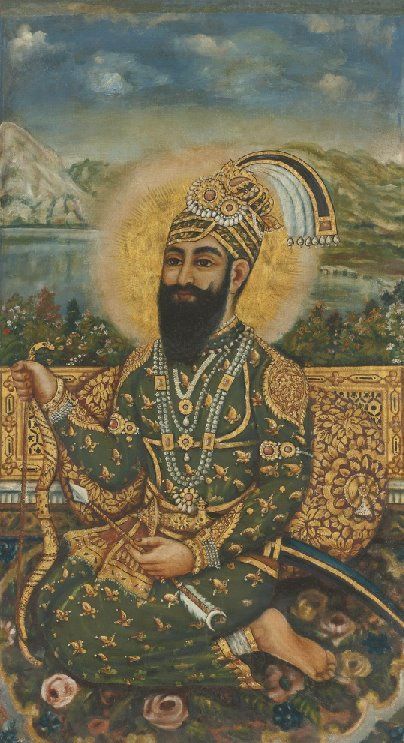
ਦੋਹਰਾ
Doharaa
Couplet [Two Lined Chhand]
ਗੁਰ ਗੋਬਿੰਦ ਪ੍ਰਤਾਪ ਤੇ, ਕਾਟਿ ਅਹੰ ਮਮ ਫਾਸਿ
Gur Gobi[n]dh Prathaap Thae Kaat[i] Aha[ng] Mam Phaas[i]
-
Word-by-Word:
Prathaap = Glory | Kaat[i] = Kaatee = Cut | Aha[n]g = Ego | Mum = Mamtaa = My-ness or My | Phaas[i] = Phaasee = Noose |
-
From Guru Gobind Singh Ji’s Radiating Glory, the noose of ego has been cut.
-
ਜਨ 'ਗੋਪਾਲ' ਬੀਚਾਰਕੈ, ਕਹਯੋ ਅਨਭਉ ਉਲਾਸ।
Jun Gopaal Beecharkai Kahayo Anbhau Oulaas
-
Word-by-Word:
Jun = Slave, Man | Beechaarkai = Discussing | Kahyo = Says, Calls, Refer to | Anbhou = Experience, Feeling | Oulaas = Prakaash = Spiritual Radiance, Enlightenment |
-
Refer to this writing by the name 'Anbhau Oulaas' as discussed by Kavi Gopaal Ji.
-
ਇਤਿ।
Eith[i]
Right here [is where this text finishes]
In the same way, we see ‘The End’ or ‘La Fin’ to mark the ending of a movie... Ith[i] is how ancient South Asian texts would end.
-
Thank you for reading this puratan writing.
Daas hopes it helps bring a different perspective when reading & reflecting on Gurbani.
Please forgive any mistakes. Please provide corrections.
Guru Panth Ka Daas,
Aaeenaa

